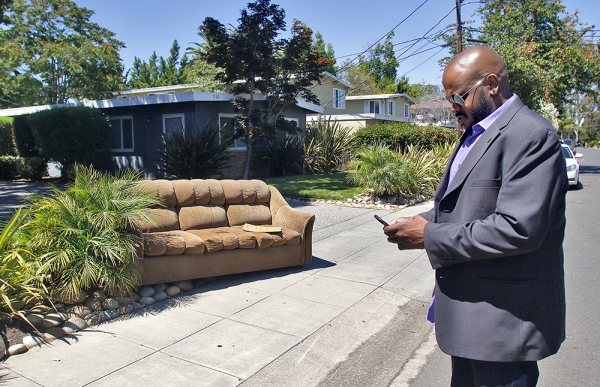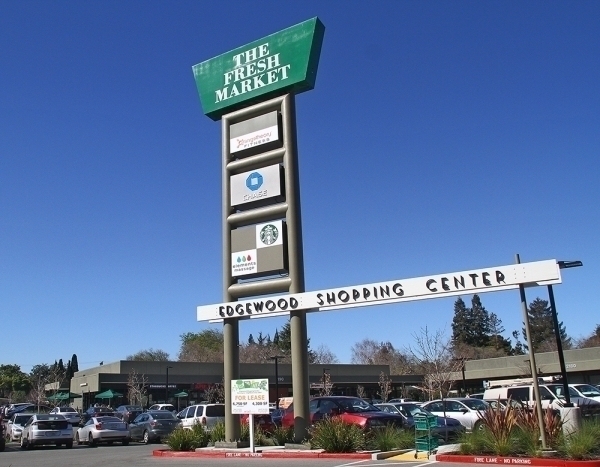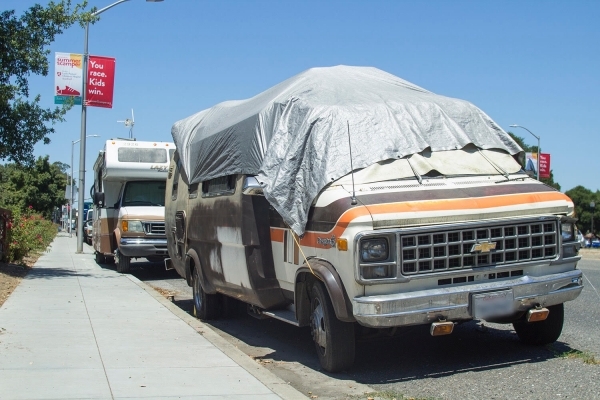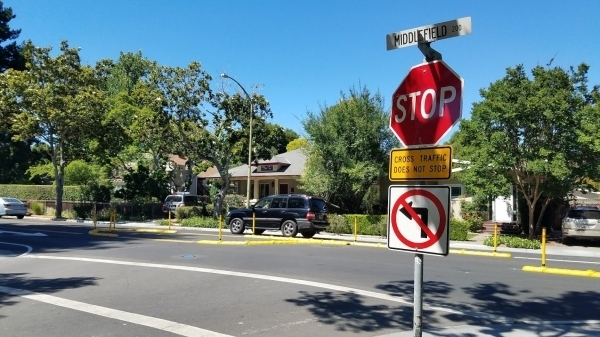Some rules are made to be broken -- at least according to those who break them. For those who enforce them -- whether they be Palo Alto's code-enforcement officers or investigators from the California Fair Political Practices Commission -- rules are necessary to promote political transparency, prevent traffic calamities, protect neighborhoods and protect retail.
In 2017, code enforcers found plenty to do in Palo Alto, where developers clashed with watchdogs over fine print and where three council members struggled to comply with campaign laws. Here are five violations that made the headlines in 2017.
1. RV CRACKDOWN The law is simple: You are not allowed to park in the same spot for more than 72 consecutive hours. For people who lived in vans and RVs along El Camino Real, north of Stanford Avenue, Palo Alto's decision to start enforcing the law this year created a complex dilemma. Some RV residents had been priced out of the region's housing market; others chose it as a lifestyle. But after receiving complaints from nearby neighbors, police began issuing parking warnings and citations. Some RV residents moved to other towns, including East Palo Alto, where officials said they want a solution to help their own residents who live in RVs, and they don't want to absorb RVs from other communities. Others, who didn't heed the warnings, learned in the fall that the city meant business when police began to tow the vehicles -- an action that for many epitomized the growing challenge of living in Palo Alto for anyone with limited means.
2. CHURCH VS. STATE Not all code-enforcement crackdowns proved equally popular. In August, a group of residents that included legendary San Francisco 49ers quarterback Steve Young, criticized the city's decision to go after businesses and nonprofit groups that rented space at First Baptist Church in the Old Palo Alto neighborhood in violation of the property’s residential zoning. The first victim of the city's enforcement was the New Mozart School of Music, which was given an eviction notice, prompting its owners to find a new location. Later, as the city prepared to go after other tenants -- including clinicians and mental health service providers -- officials decided to tap the brakes and look for ways to accommodate the tenants while addressing the concerns of the church's neighbors about traffic and noise.
3. DARK MONEY Palo Alto lawmakers rarely find themselves under investigation for breaking the law, but this year was an exception, with three council members facing probes from the Fair Political Practices Commission. The complaints against Adrian Fine (who failed to include an ID number on a mailer) and Greg Tanaka (who did not disclose the occupations of several developers who contributed to his campaign) were resolved fairly quickly, with Fine getting a warning and Tanaka paying a $733 fine. The probe against Vice Mayor Liz Kniss, who allegedly failed to report most of her contributions from developers until well after the November 2016 election, appears to be a more complicated affair. It began in March and remains ongoing as the year comes to a close.
4. ON EDGEWOOD The legal tussle between the city of Palo Alto and developer Sand Hill Property Company went back and forth this year, with an administrative judge siding with the city in April and a Superior Court judge favoring the developer in December. The big question that they sparred over was whether the city can legally continue to fine Sand Hill for its failure to continuously operate a grocery store at the recently redeveloped Edgewood Plaza. That was just one of a series of Palo Alto conflicts that revolved around zoning-code definitions. Earlier in the year, residents were upset to see retail-zoned sites being converted to offices and warehouses. In some cases, the city has responded. This summer, code enforcement required Coupa Café, which has been using an El Camino Real retail site for warehousing, to expand the retail component of its business there. Officials also required a Middlefield Road building leased by restaurant Asian Box, supposedly for a gluten-free bake shop, to provide more customer seating in response to complaints that the space is being primarily used as the company's corporate office.
5. MIDDLEFIELD ROAD RAGE: Too many Middlefield Road commuters treat the "no left turn" restrictions north of University Avenue as little more than friendly suggestions -- much to the chagrin of nearby residents. Enraged by traffic problems that span from total gridlock to careless speedsters, and fed up with the high number of accidents and near misses on the stretch of Middlefield, Crescent Park and Downtown North residents succeeded this year in petitioning the city to redesign the northernmost stretch of the busy roadway to modify lanes and add barriers to prevent turns on Everett Avenue. The one-year pilot program is now about halfway through and, to date, has netted mixed results. The accident rate remains steady, according to a recently published review of the program, though the number of near-crashes has gone down -- bringing a small measure of relief to residents accustomed to seeing cars hurtling onto front yards with shocking regularity.
Related content:






Comments